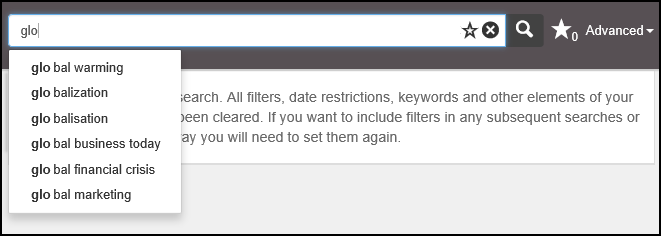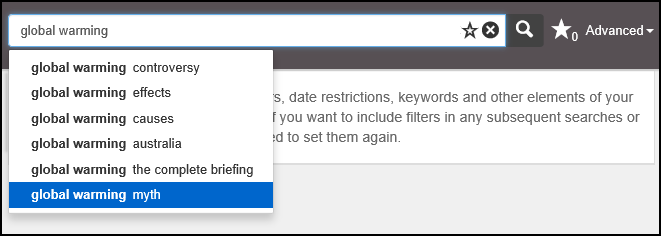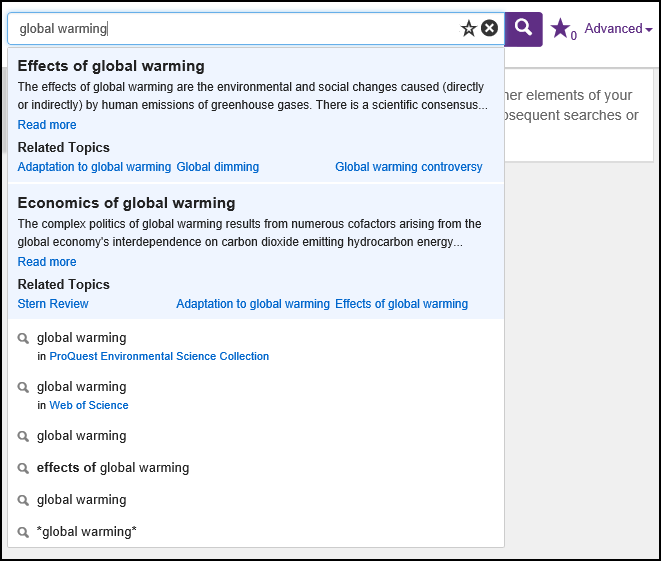Summon: Autocomplete Feature
- Product: Summon
How does Summon's Autocomplete feature work?
The Autocomplete and Enhanced Autocomplete features provide Summon users with suggestions as they type in a search box. You can enable or disable these features in the Summon Admin Console. For details, see Summon Administration Console: Settings.

As you type within the search box, the Summon autocomplete algorithm offers searches that might be similar to the one you are typing. Start to type global or even just glo and the feature will suggest global warming, globalization, and global financial crisis, and other potentially useful search terms.
This feature reduces the number of keystrokes needed by predicting search queries in real-time, as well as expanding a search query by suggesting search terms that will help increase the precision of your search. For example, if you continue typing global warming, the suggested list becomes further refined as shown here:

Enhanced Autocomplete also provides suggestions for other sources (such as Popular Searches, Topics, Best Bets, and Database Recommendations) if they are defined:

The Encyclopedia and Related Topics components must be enabled in the Summon Admin Console (Admin Console > Settings > Topics > Topics Display) to display them for Enhanced Autocomplete. For more details, see Summon Administration Console: Settings.
How the Algorithm Works
As you type, the algorithm predicts and displays search queries based on other users' search activities. Suggestions are determined based on purely algorithmic factors (including the popularity of search terms and the number of clicks the results receive) without human intervention.
The Summon Autocomplete feature is supported in multiple languages, but many languages may not have enough data available yet to deliver suggestions.
Exclusions
The search queries that you see as part of autocomplete reflect the search activity of all Summon users across all customer sites. You may be surprised at the diversity of the queries that are suggested. We try to make few judgments about what should and shouldn't be used and rely on the crowdsourcing of millions of searches a month to filter out inappropriate or less useful queries. However, we also apply a very narrow set of removal policies for suggestions that might reflect hate speech or other terms that would be offensive to users that they might see accidentally when searching for something else.
Excluded queries are still valid searches and will present results.
Missing predictions
If no predicted searches appear for a particular word or topic, it's likely due to one of the following reasons:
-
The search term is not popular enough. Even in a search product that sees millions of queries per month, it may be that users simply aren't searching for a particular term. A minimum algorithmic threshold for popularity improves the likelihood that the search queries you do see are relevant to your search.
-
The search term is too new. It can take some time for newly popular search terms to appear in autocomplete because our updating schedule is currently one month.
-
The search term violates our autocomplete policies. The goal is to provide you with relevant search queries for a research environment, so we exclude a narrow class of search queries that may be considered hate speech or which could be offensive to some people and might show up when searching for something completely different.
-
The search term is not in English. Although we do make multilingual suggestions, there may not be enough query content to make a broad scope of suggestions for other languages. This will be improved over time.

